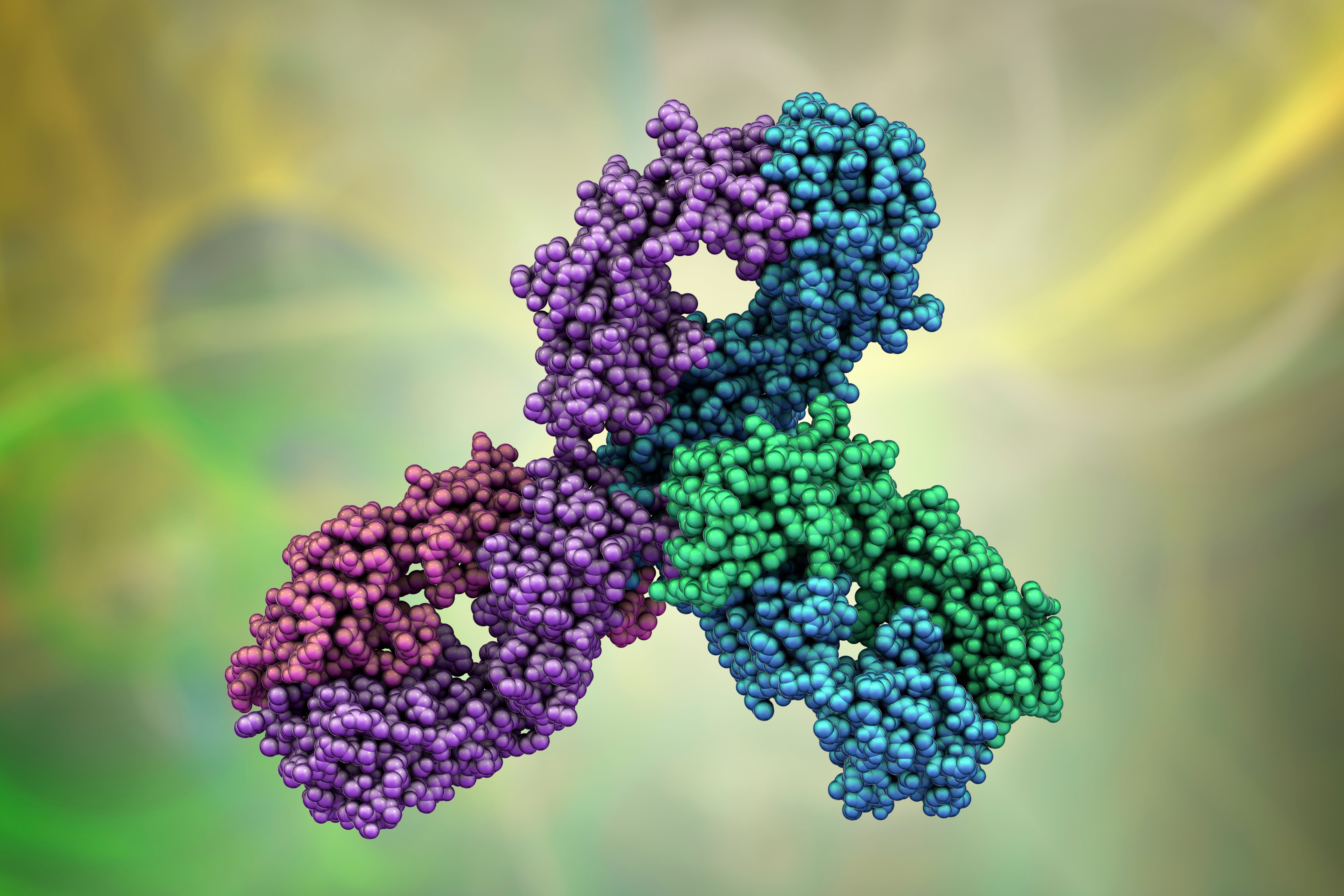News
Article
Pembrolizumab Plus Chemotherapy Led to Pathological Complete Response in Patients with Breast Cancer
Author(s):
Key Takeaways
- Pembrolizumab plus chemotherapy significantly improved pCR rates in high-risk, early-stage ER+/HER2- breast cancer in the KEYNOTE-756 trial.
- The trial's dual primary endpoints were pCR rate and event-free survival, with secondary endpoints including overall survival and safety.
The trial was recommended to continue to analyze event-free survival rates, but current results are encouraging for treating estrogen receptor-positive, human epidermal growth factor receptor 2-negative breast cancer.
Pembrolizumab (Keytruda; Merck) plus chemotherapy met 1 of its dual endpoints of pathological complete response (pCR) in the phase 3 KEYNOTE-756 trial, according to a press release from Merck.
Image credit: Dr_Microbe - stock.adobe.com

The randomized, double-blind, phase 3 trial evaluated pembrolizumab, an anti-PD-1 therapy, with chemotherapy as neoadjuvant treatment, followed by adjuvant treatment with pembrolizumab in addition to endocrine therapy, for treatment of high-risk, early-stage estrogen receptor-positive, human epidermal growth factor receptor 2-negative (ER+/HER2-) breast cancer, according to the release.
“This is the first positive phase 3 study evaluating an immunotherapy-based regimen for patients with high-risk, early-stage ER-positive, HER2-negative breast cancer, and an important milestone in our efforts to advance research in early-stage breast cancer,” said Gursel Aktan, MD, vice president of global clinical development at Merck Research Laboratories, in a press release.
The dual primary endpoints were pCR rate and event-free survival (EFS), whereas secondary endpoints included overall survival and safety. pCR is achieved when there is a lack of all signs of cancer in tissue samples following completion of neoadjuvant therapy and definitive surgery. Trial participants were randomized to receive either pembrolizumab in combination with chemotherapy or placebo plus chemotherapy.
An interim analysis that was conducted by an independent Data Monitoring Committee (DMC) showed that the pembrolizumab-based treatment regimen demonstrated a statistically significant improvement in pCR rate in comparison to neoadjuvant placebo plus chemotherapy, according to the results of the trial.
The DMC recommended that the KEYNOTE-756 trial should continue without changes to evaluate the other dual primary endpoint of EFS. However, the safety profile of pembrolizumab in the trial was consistent with observations from previously reported studies, and no new safety signals were recorded, according to Merck.
Pembrolizumab is currently approved in the United States for 2 indications in treating patients with triple-negative breast cancer (TNBC). The results of a prior study, KEYNOTE-522, led to the approval of pembrolizumab in combination with chemotherapy as neoadjuvant treatment, then continued as a single agent after surgery for those with high-risk, early-stage TNBC.
Another previously conducted study, KEYNOTE-355, led to pembrolizumab being approved in combination with chemotherapy for the treatment of patients who have locally recurrent unresectable or metastatic TNBC whose tumors express PD-L1, according to the press release.
Those trials also support the approvals of pembrolizumab-based regimens for certain patients with locally recurrent unresectable metastatic TNBC and high-risk early-stage TNBC respectively in over 90 countries.
“While significant advancements have been made in the treatment of ER-positive, HER2-negative breast cancer, people diagnosed with high-risk disease as assessed by clinical and pathologic criteria typically have a worse prognosis and limited options before surgery,” said Fatima Cardoso, MD, director of the Breast Unit of the Champalimaud Clinical Centre in Lisbon, Portugal, and co-principal investigator, in the release.
“Data from KEYNOTE-756 suggest that adding pembrolizumab to neoadjuvant chemotherapy before surgery can significantly improve the pCR rate compared to neoadjuvant chemotherapy alone for people with high-risk, early-stage ER-positive, HER2-negative breast cancer,” she continued.
Reference
Merck announces phase 3 KEYNOTE-756 trial met primary endpoint of pathological complete response (pCR) rate in patients with high-risk, early-stage ER+/HER2-breast cancer. Merck. News release. July 28, 2023. Accessed July 28, 2023. https://www.merck.com/news/merck-announces-phase-3-keynote-756-trial-met-primary-endpoint-of-pathological-complete-response-pcr-rate-in-patients-with-high-risk-early-stage-er-her2-breast-cancer/
Newsletter
Stay informed on drug updates, treatment guidelines, and pharmacy practice trends—subscribe to Pharmacy Times for weekly clinical insights.






